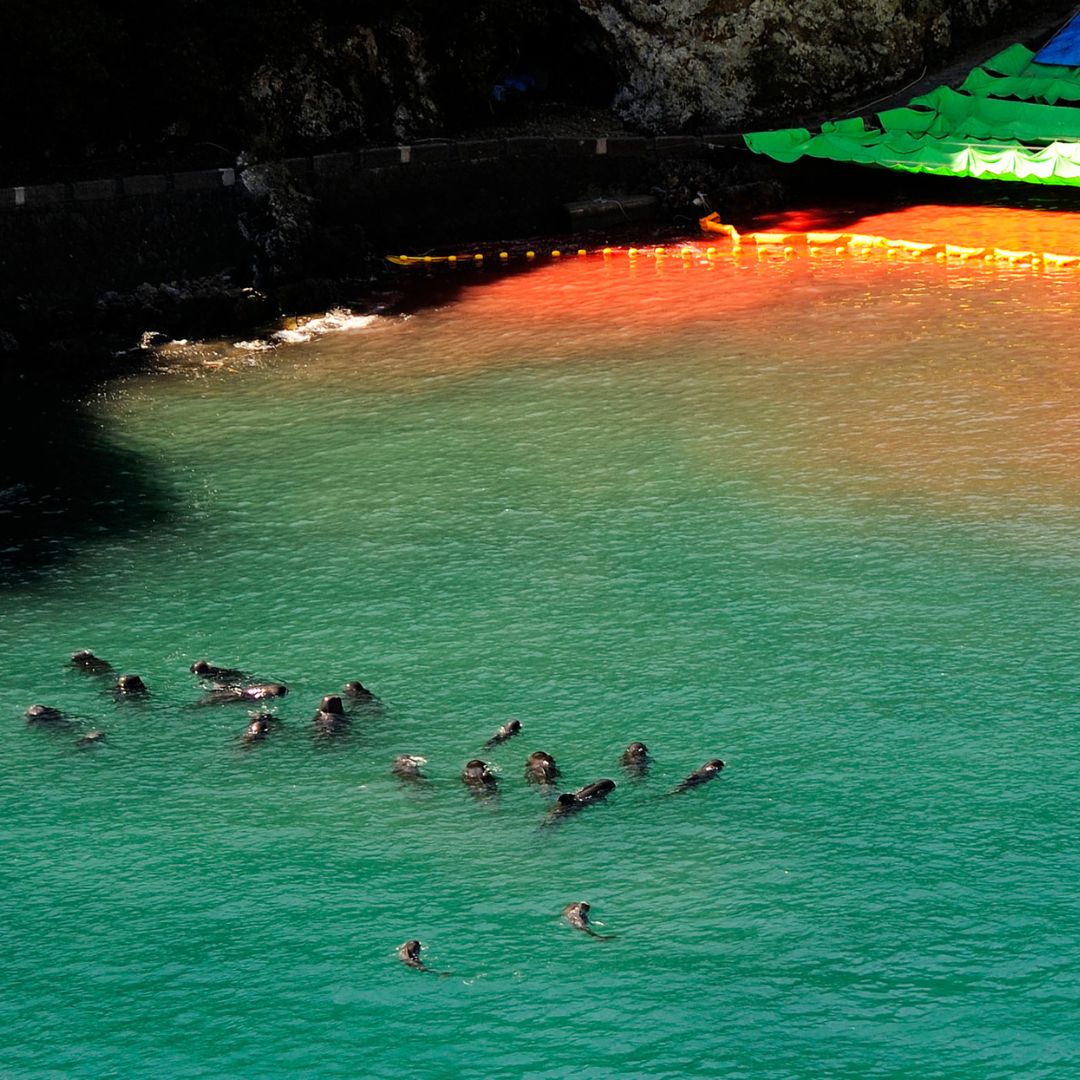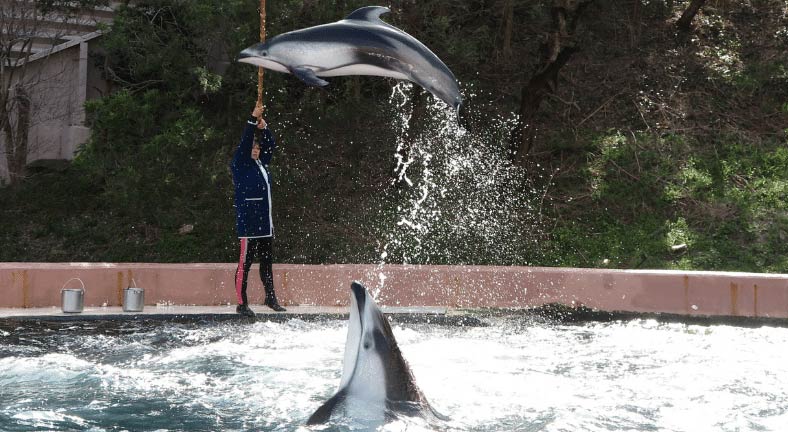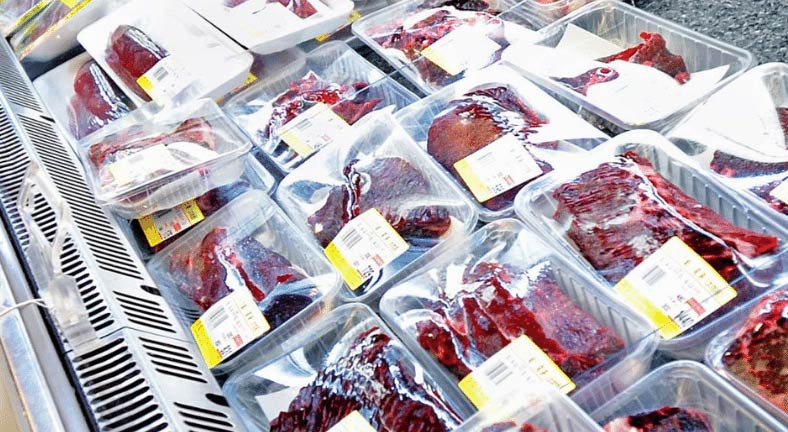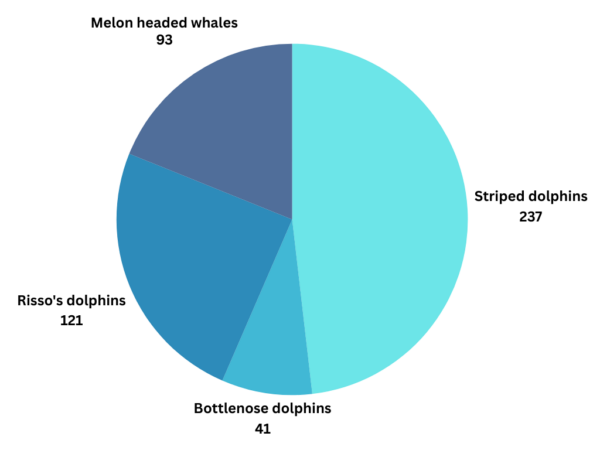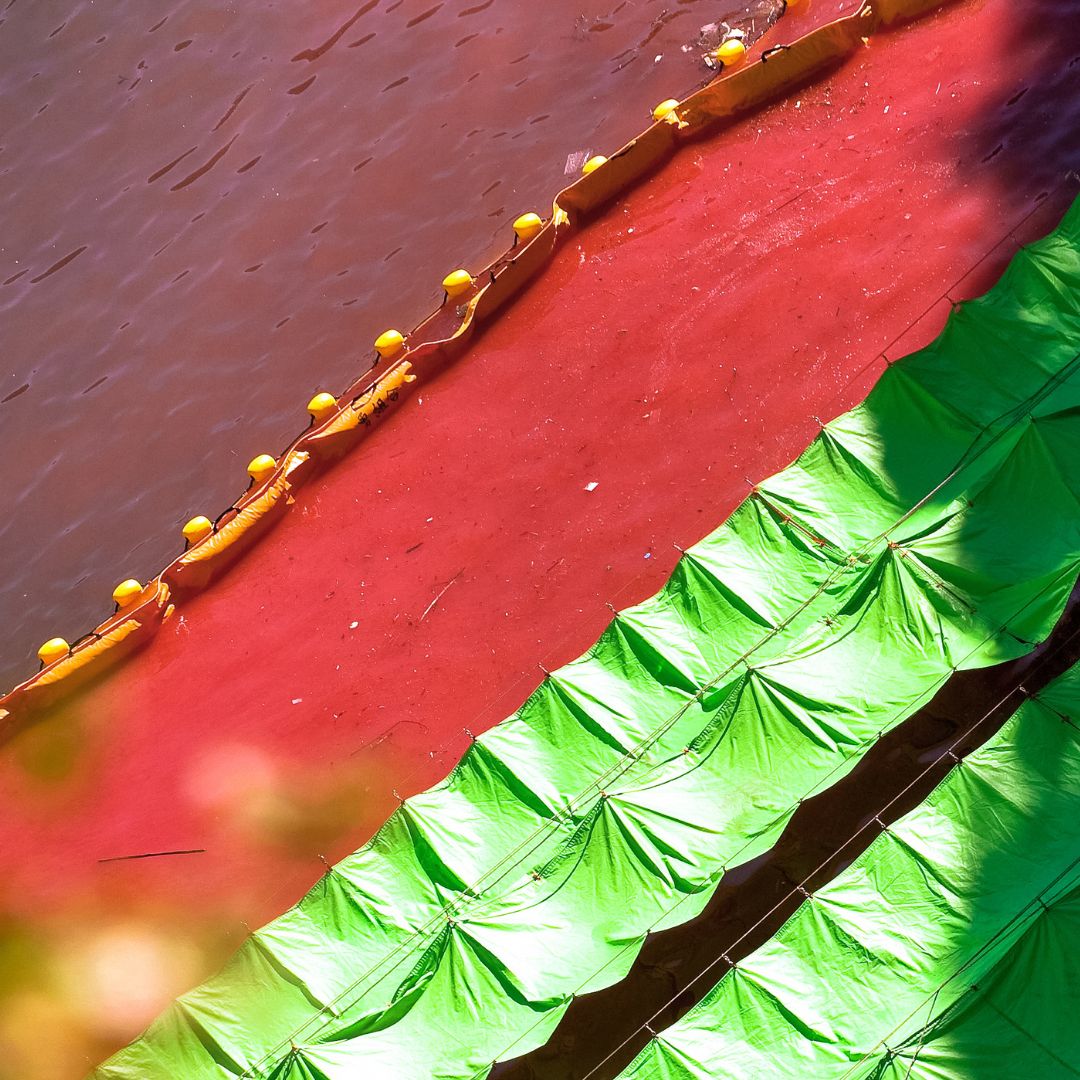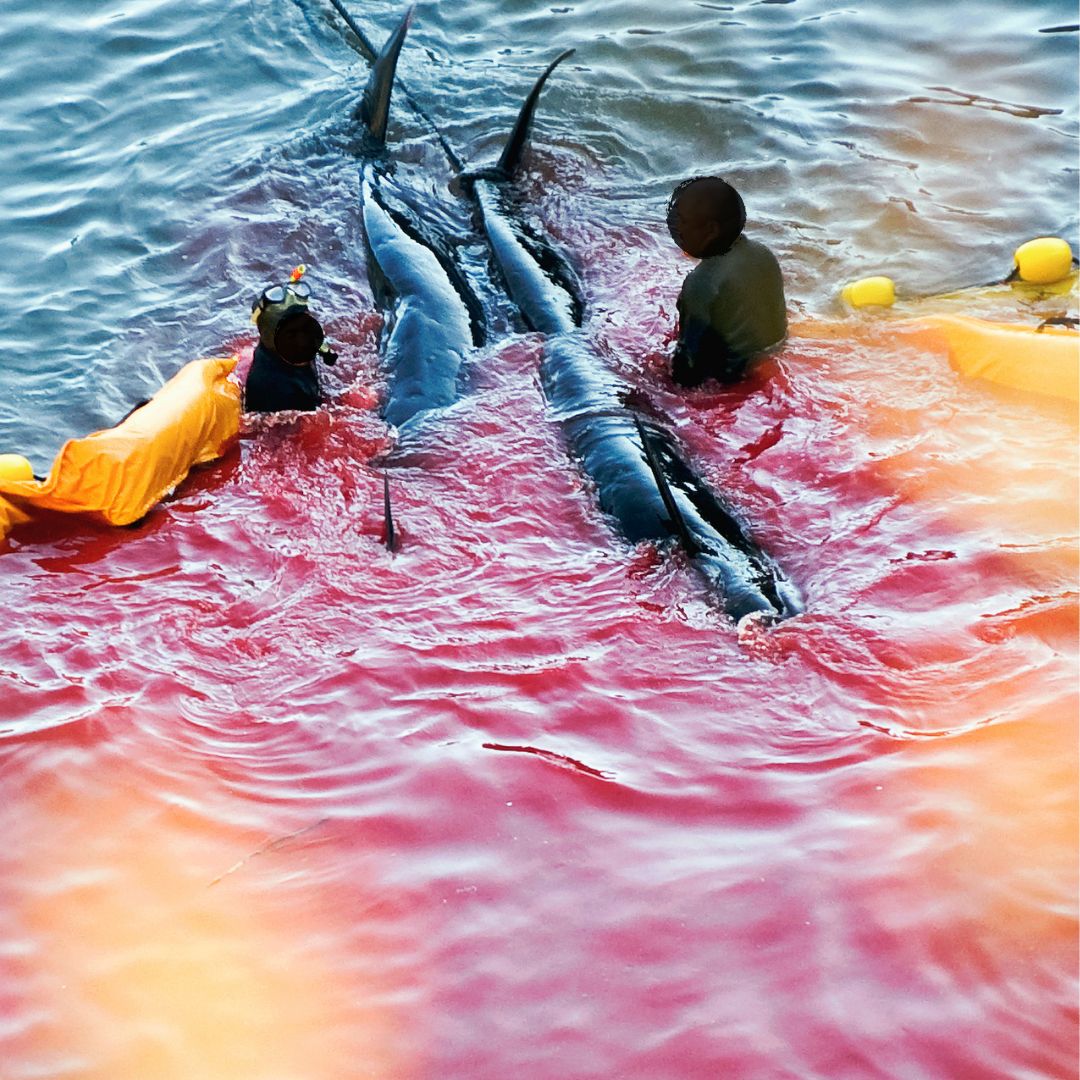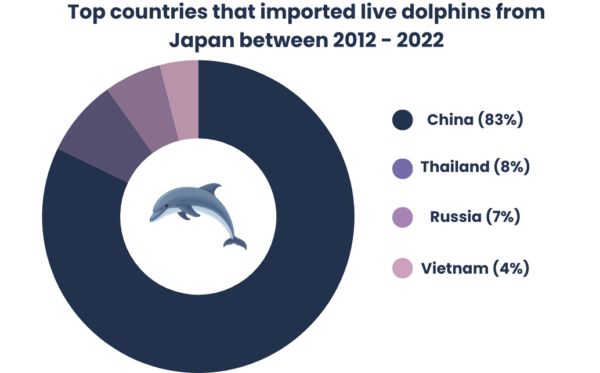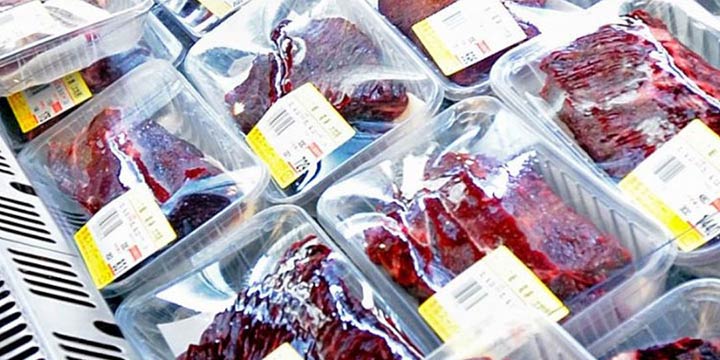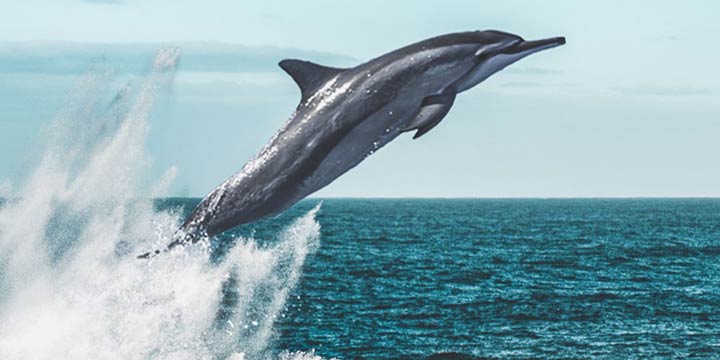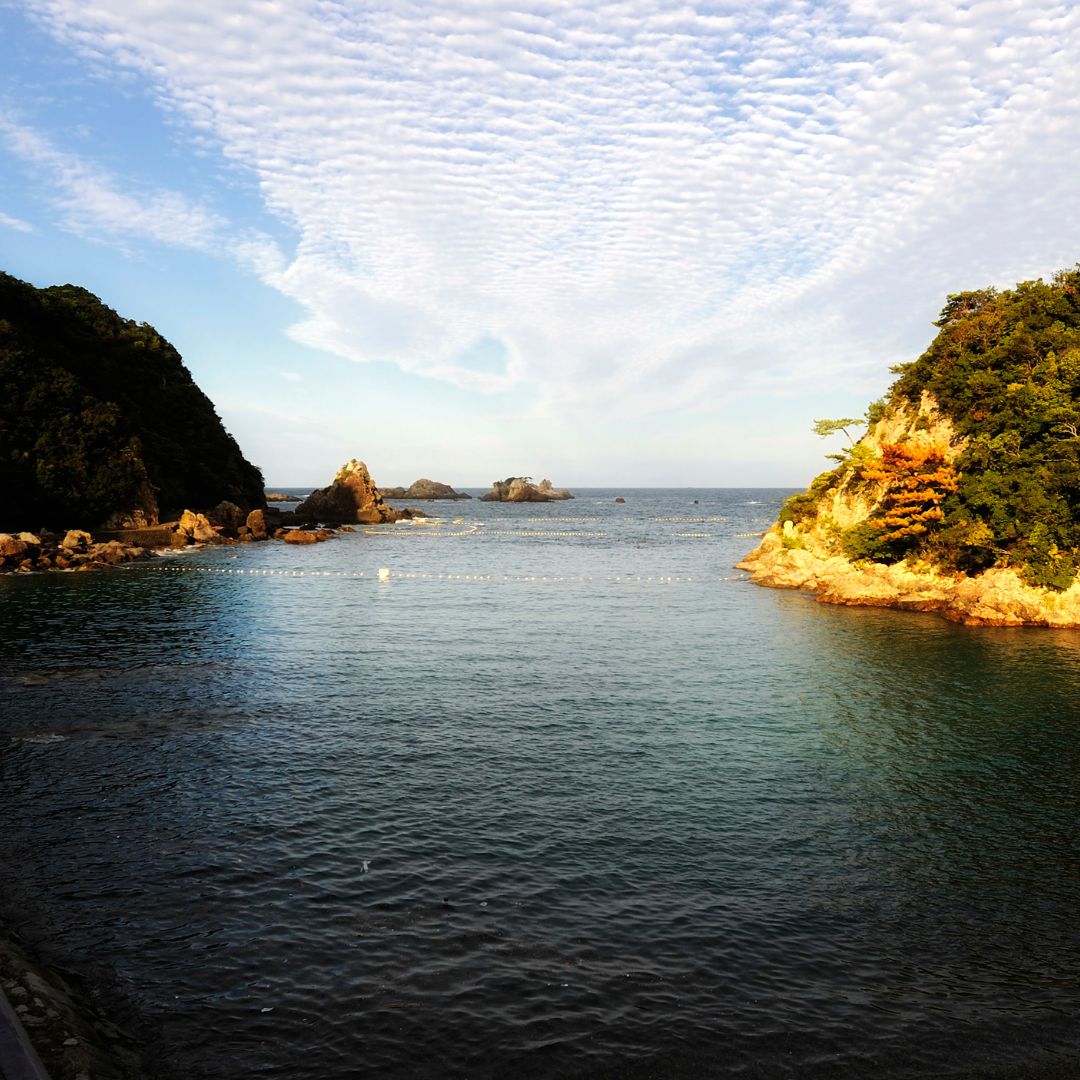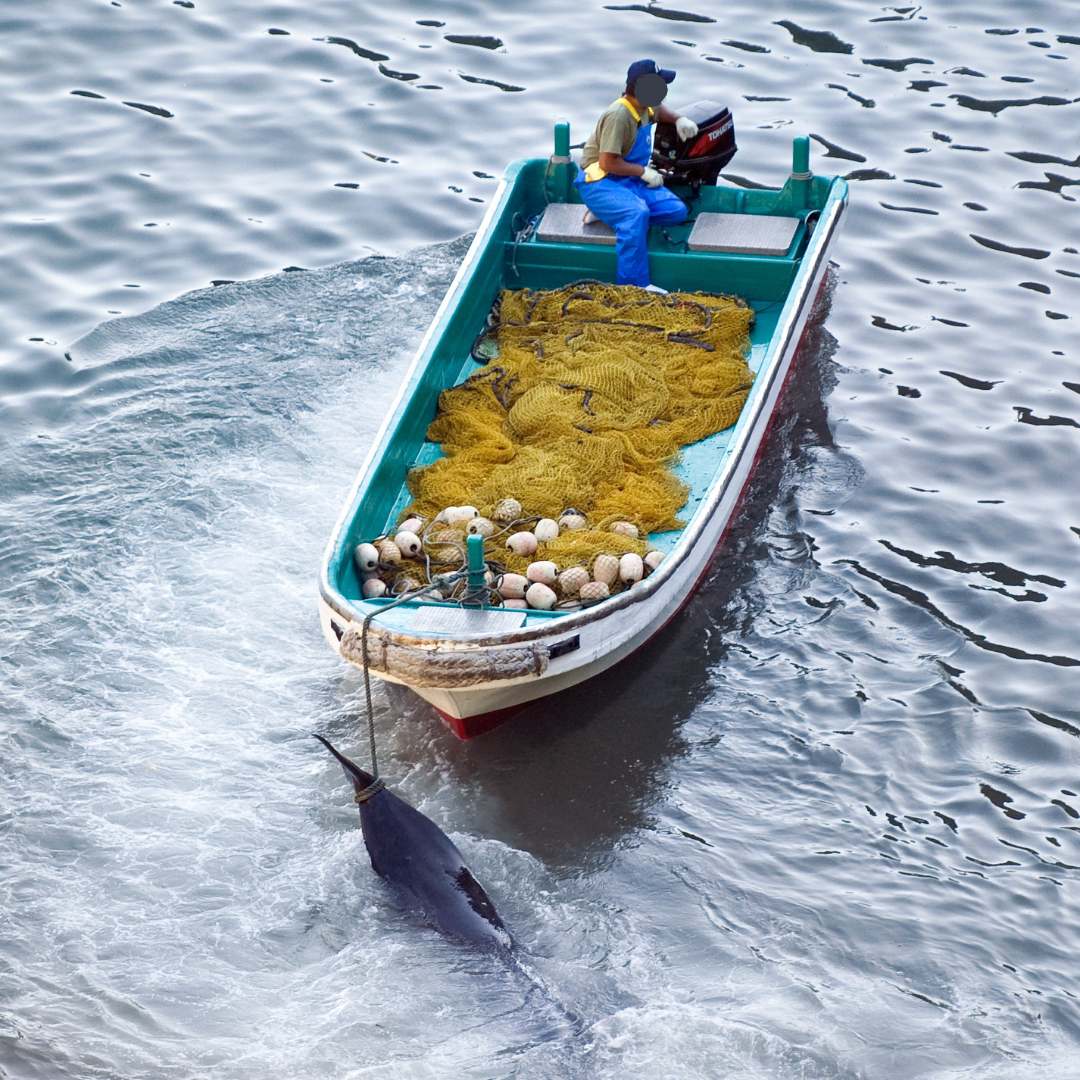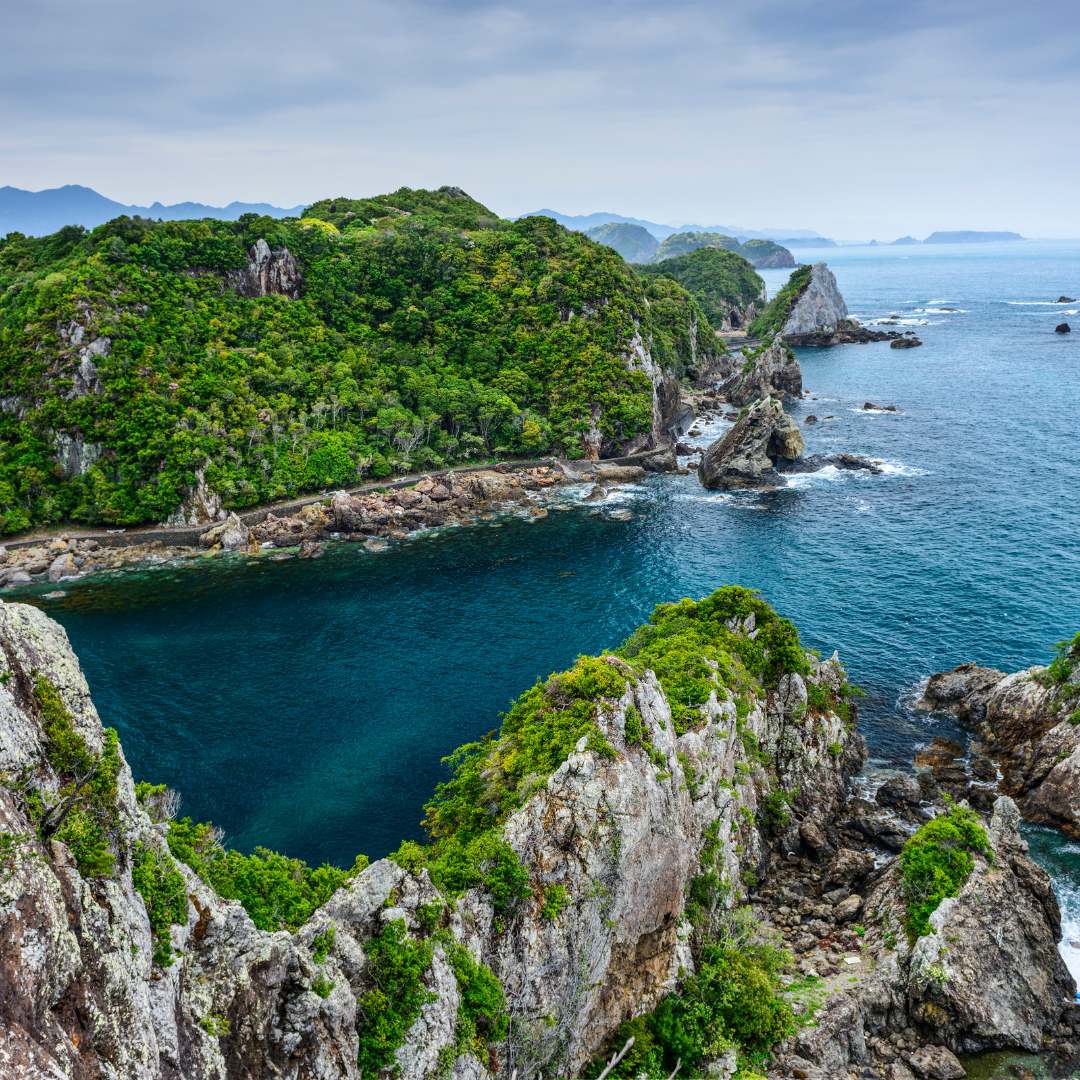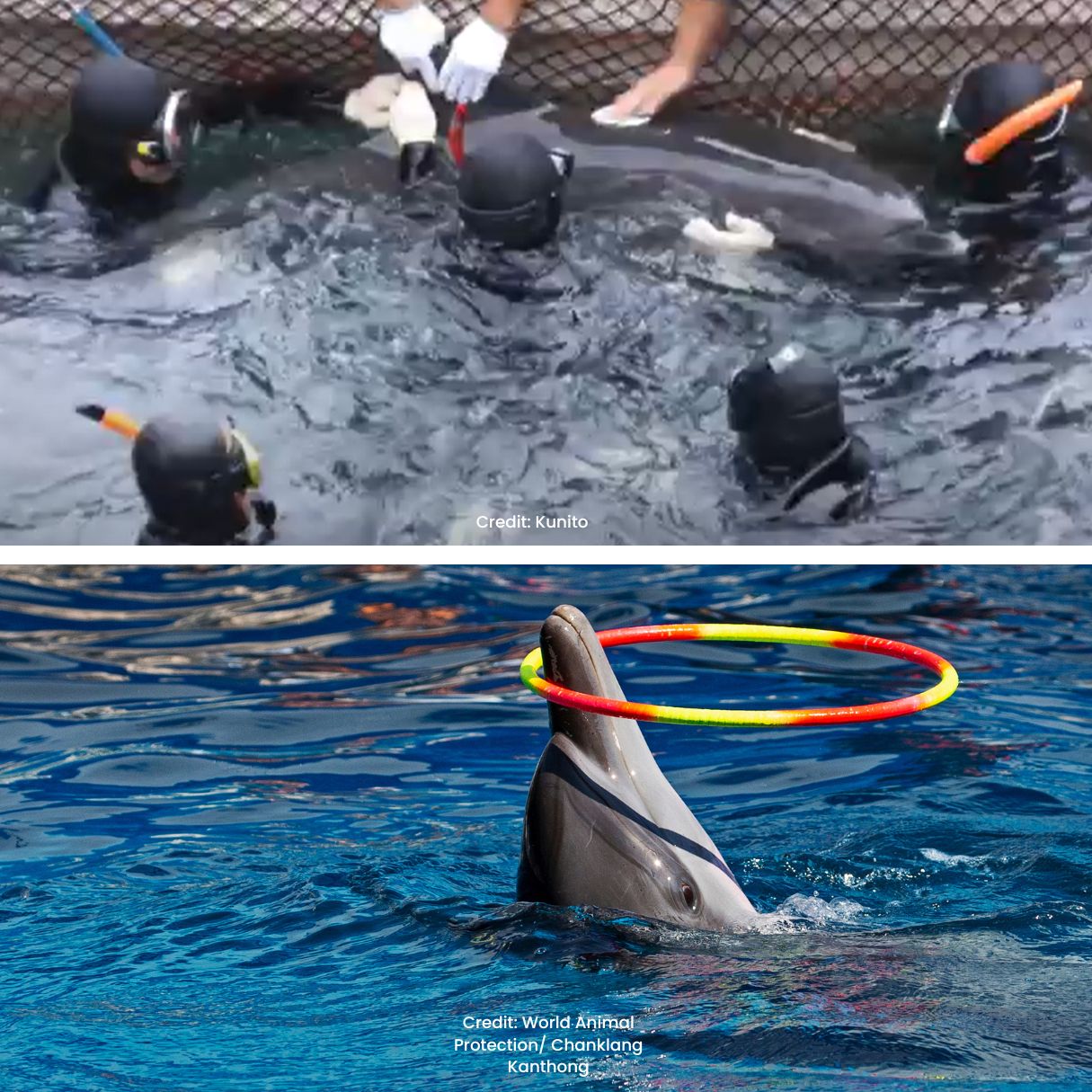The connection between the sale of dolphin meat and the Taiji dolphin hunts has led to international criticism because of the possible impacts to human health.
Dolphins can accumulate high levels of toxins like mercury in their bodies, which can be harmful to humans’ health if consumed regularly. The World Health Organisation considers mercury to be one of the top ten chemicals of major public health concern.
Many dolphin meat samples were tested by a Japanese laboratory. These samples contained mercury that is much higher than 0.4ppm – which is the amount recommended as safe for human consumption by Japanese regulations.
Tests completed in 2023 by a Japanese laboratory revealed that the mercury levels in a tested dolphin meat sample sold throughout Japan were up to 265 times higher than the government recommended limit.
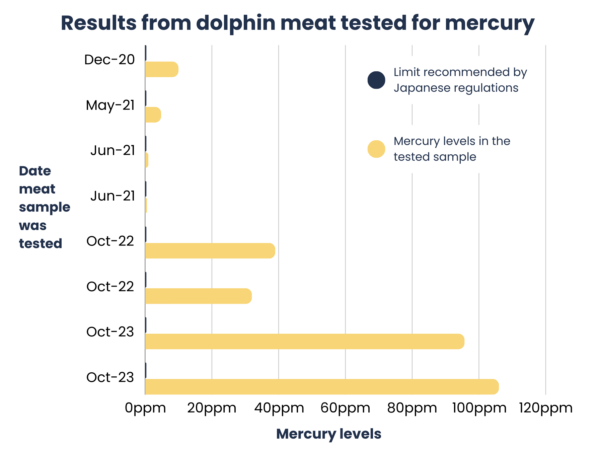
The same dolphin meat samples were tested for methyl mercury. Methylmercury is considered the most poisonous among the mercury compounds. People are exposed to methylmercury when they eat marine life that contains this compound. The results showed that almost every sample contained methylmercury at levels higher than 0.3ppm – which is the amount recommended as safe for human consumption by Japanese regulations.
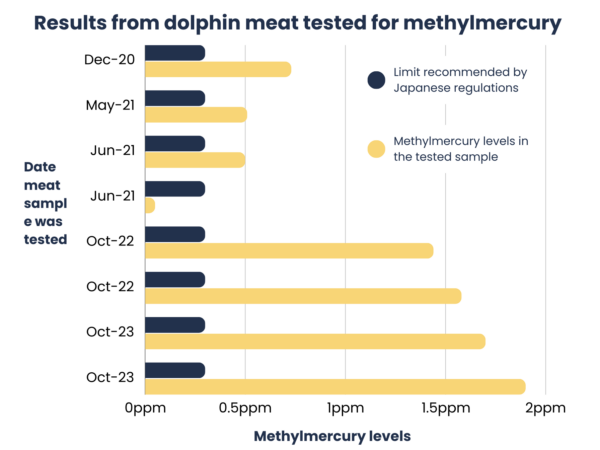
Despite this, dolphin meat continues to be sold with very little regulation or testing. If we can stop the sale of dolphin meat, it could save hundreds of dolphins from slaughter each year and help people being exposed to harmful toxins through consumption of dolphins.
